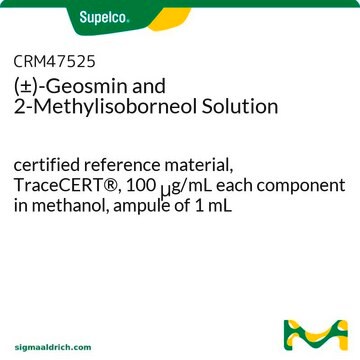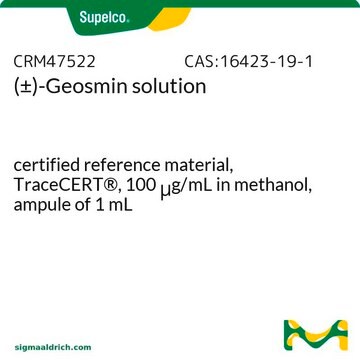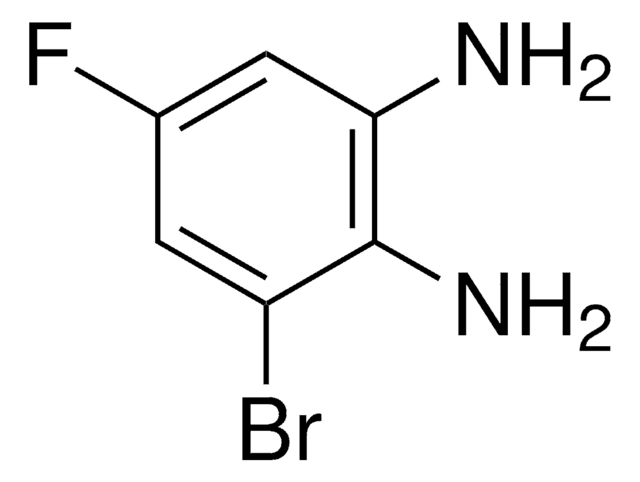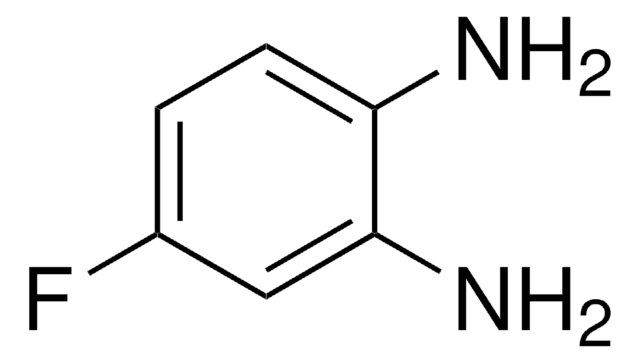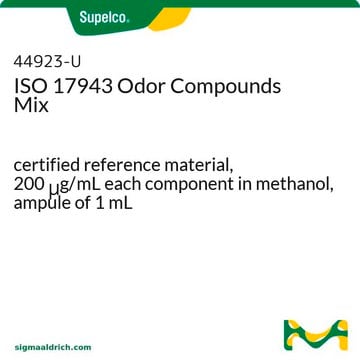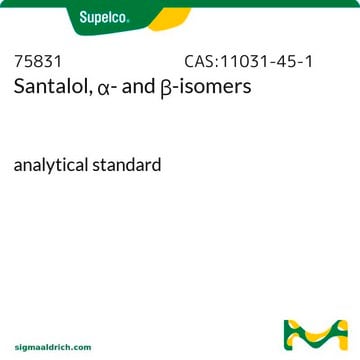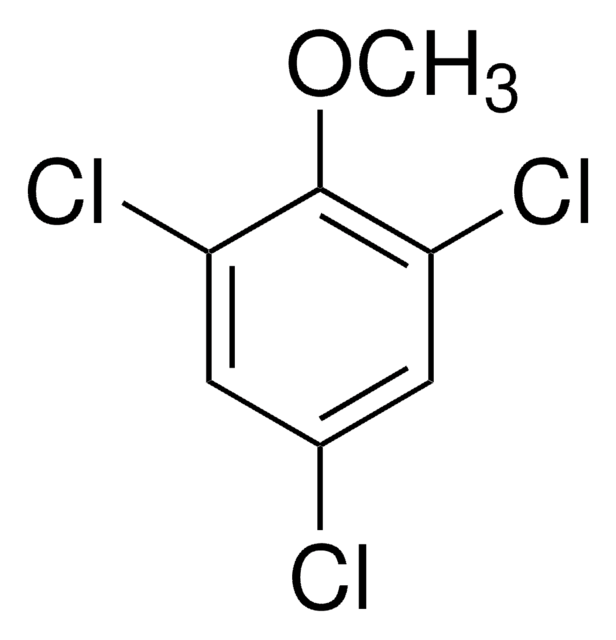743364
2-Methylisoborneol
≥98.0% (GC)
Synonym(s):
exo-1,2,7,7-Tetramethylbicyclo[2.2.1]heptan-2-ol
About This Item
Recommended Products
Quality Level
Assay
≥98.0% (GC)
form
solid
functional group
hydroxyl
SMILES string
O[C@]1([C@]2(C([C@@H](C1)CC2)(C)C)C)C
InChI
1S/C11H20O/c1-9(2)8-5-6-10(9,3)11(4,12)7-8/h8,12H,5-7H2,1-4H3/t8-,10-,11-/m1/s1
InChI key
LFYXNXGVLGKVCJ-FBIMIBRVSA-N
Application
- Odor compound prioritization in water: A study employed machine learning models combined with non-target analysis to prioritize odorous compounds like 2-Methylisoborneol in surface water, enhancing the effectiveness of environmental monitoring and treatment strategies (Huang et al., 2024).
- Water treatment with carbon materials: The study explored the use of Spirulina-based carbon materials as adsorbents for removing 2-Methylisoborneol from drinking water, also assessing the cyto-genotoxic effects, thus contributing to safer and more effective water treatment solutions (Antonopoulou et al., 2024).
- Quantification in aquaculture: Improved methods for quantifying 2-Methylisoborneol in farmed fish were developed using stable isotope dilution gas chromatography-mass spectrometry, facilitating better management of water quality in aquaculture environments (Dupre et al., 2024).
Packaging
Signal Word
Danger
Hazard Statements
Precautionary Statements
Hazard Classifications
Flam. Sol. 1 - Skin Irrit. 2
Storage Class Code
4.1B - Flammable solid hazardous materials
WGK
WGK 3
Flash Point(F)
Not applicable
Flash Point(C)
Not applicable
Regulatory Listings
Regulatory Listings are mainly provided for chemical products. Only limited information can be provided here for non-chemical products. No entry means none of the components are listed. It is the user’s obligation to ensure the safe and legal use of the product.
JAN Code
743364-20MG-BULK:
743364-25MG:
743364-5MG:
743364-5MG-BULK:
743364-20MG-SBULK:
743364-25MG-BULK:
743364-VAR:
743364-20MG:
743364-BULK:
Choose from one of the most recent versions:
Already Own This Product?
Find documentation for the products that you have recently purchased in the Document Library.
Customers Also Viewed
Our team of scientists has experience in all areas of research including Life Science, Material Science, Chemical Synthesis, Chromatography, Analytical and many others.
Contact Technical Service

